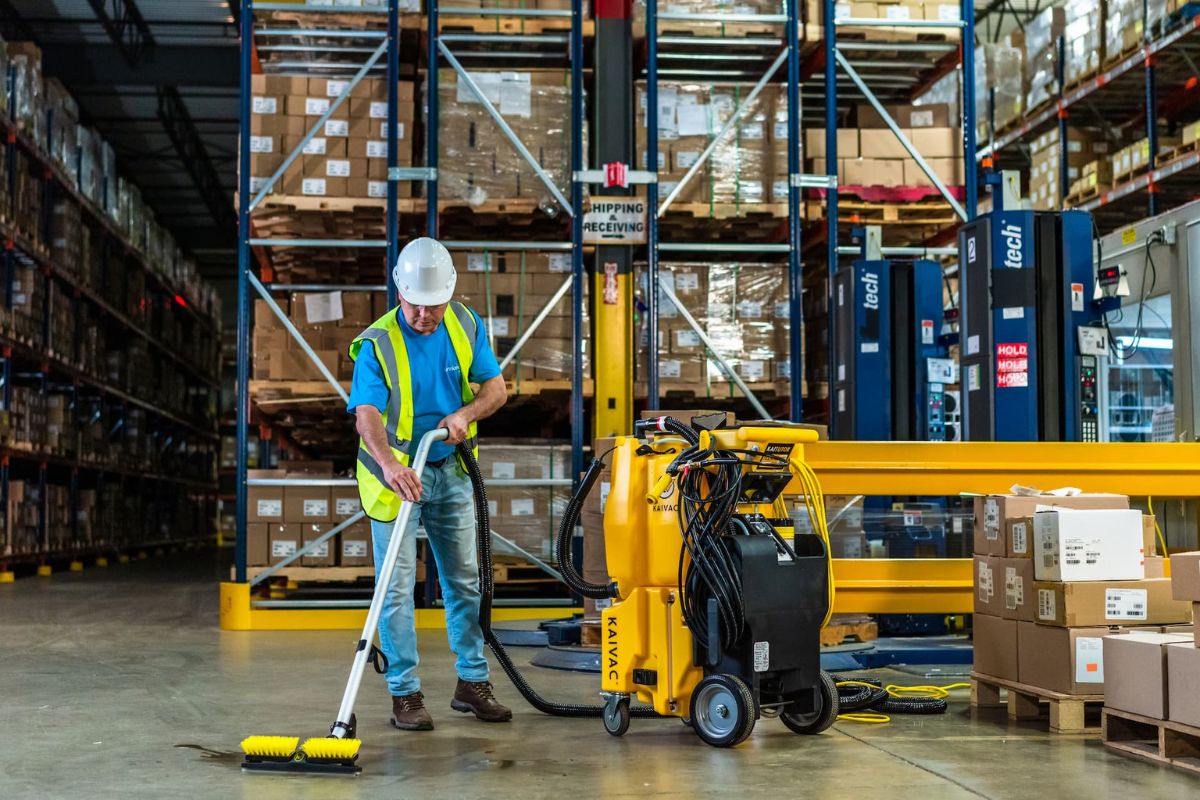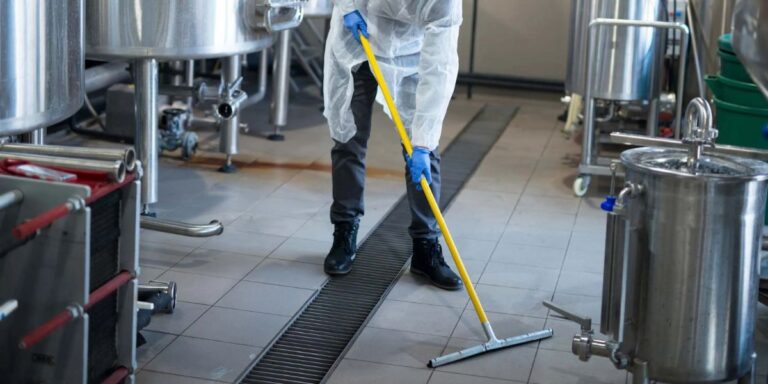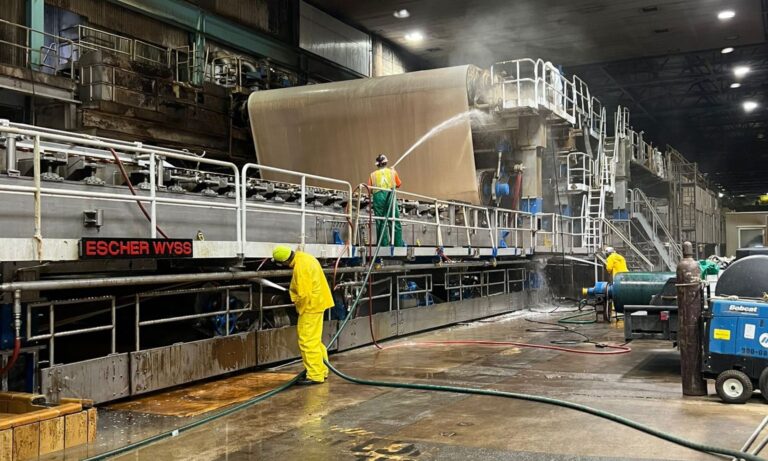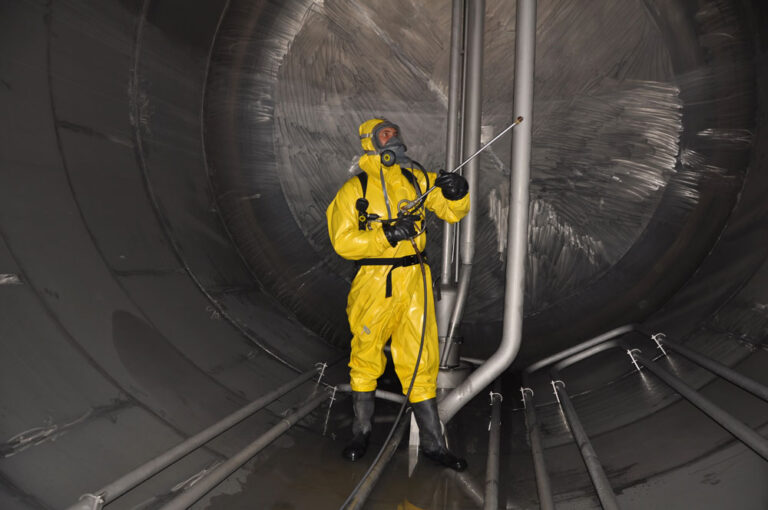A clean factory is not just about appearances. It plays a crucial role in maintaining workplace safety. Factories have heavy machinery, electrical systems, and moving parts that can pose risks. A well-maintained environment reduces hazards and ensures efficiency. Many accidents happen due to spills, debris, or poorly maintained workspaces. Keeping the factory clean can help prevent these issues. With proper industrial cleaning services, workplaces can maintain a safe and organized environment.
Why Cleanliness Matters in a Factory
Factories operate under strict guidelines. Clean work areas reduce risks for workers. When floors are clear of spills, slips and falls are less likely. A dust-free environment also lowers respiratory issues among employees. Dirty and cluttered areas can lead to serious injuries. Ensuring that cleaning routines are in place prevents unexpected incidents.
Reduces Slip and Fall Accidents
Slips and falls are common in industrial settings. Grease, oil, and liquid spills create hazards. Workers rushing between stations may not notice a spill in time. Regular cleaning eliminates these dangers. Properly maintained floors with anti-slip coatings add another layer of safety. Wet areas should have warning signs to alert workers.
Prevents Fire Hazards
Factories contain flammable materials like chemicals, wood, and paper. Dust buildup can become fuel for fires. Electrical systems also pose a risk if not cleaned properly. Oily rags, paper scraps, and other waste must be disposed of safely. Routine cleaning of vents and machines prevents overheating. Keeping workspaces clutter-free minimizes the chances of fire outbreaks.
Improves Air Quality
Factories produce dust, fumes, and chemical vapors. Poor air quality can lead to breathing problems. Workers exposed to toxic air for long hours may develop long-term health issues. Cleaning air ducts and ventilation systems reduces contaminants. Installing air filters helps trap harmful particles. A clean factory ensures fresh air circulation and a healthier workforce.
Minimizes Equipment Malfunctions
Machinery in factories needs to be in top condition. Dirt and debris can cause mechanical failures. When dust accumulates inside machines, they overheat or jam. Regular cleaning and maintenance extend the lifespan of equipment. Well-maintained machinery reduces unexpected downtime.
Keeps Work Areas Organized
A disorganized workspace increases the risk of accidents. Tools left lying around can cause trips and falls. Workers searching for misplaced items waste valuable time. Labeling shelves, using storage bins, and keeping tools in designated places improve efficiency. A clean and organized factory ensures smooth operations.
Reduces Exposure to Hazardous Substances
Many factories deal with chemicals and hazardous materials. Leaks and spills pose health risks. Proper cleaning removes toxic residues. Workers must wear protective gear when handling dangerous substances. Regular waste disposal ensures harmful materials don’t accumulate. Safe cleaning practices protect employees from exposure.
Enhances Employee Morale
A clean workplace boosts employee confidence. Workers feel more comfortable and motivated in a well-maintained environment. A messy factory can lead to stress and reduced productivity. Employees take pride in a clean and safe workspace. Regular cleaning routines show that management values worker safety.
Supports Compliance with Regulations
Factories must follow health and safety laws. Regulatory agencies conduct inspections to ensure compliance. A dirty factory can lead to fines or shutdowns. Proper cleaning practices keep the factory in line with industry standards. Preventing violations avoids legal troubles and maintains a positive reputation.
Encourages a Safety-First Culture
A clean factory promotes a safety-conscious mindset. When employees see cleaning as a priority, they become more aware of potential hazards. Training sessions on cleanliness and safety reinforce best practices. Encouraging workers to report spills or hazards fosters a proactive safety culture.
The Role of Industrial Cleaning Services
Managing factory cleanliness requires expertise. Cleaning industrial spaces differs from regular office cleaning. Special equipment and techniques are needed to remove industrial waste, dust, and grime. Professional industrial cleaning services handle these tasks efficiently. They ensure deep cleaning, waste disposal, and sanitation, keeping factories safe and compliant.
Boosts Productivity and Efficiency
A cluttered and dirty factory slows down operations. Workers spend more time navigating around obstacles or dealing with machine breakdowns caused by dirt buildup. When workspaces are clean and well-organized, tasks are completed faster and with fewer interruptions. A well-maintained environment allows employees to focus on their jobs without distractions, leading to improved efficiency and overall productivity.
Lowers Maintenance Costs
Neglecting cleanliness can lead to costly repairs. Dust and debris can damage machinery, causing frequent breakdowns and expensive replacements. Regular cleaning prevents wear and tear, extending the lifespan of equipment. Investing in proper cleaning routines reduces unexpected maintenance costs and ensures that factory operations run smoothly without unnecessary downtime.
Final Thoughts
Keeping a factory clean is essential for accident prevention. It reduces workplace hazards, improves air quality, and keeps equipment running smoothly. Employees benefit from a safe and healthy environment. Implementing strict cleaning routines minimizes risks.
Prioritizing safety through cleanliness ensures smooth factory operations. Investing in the right cleaning solutions makes a significant difference. Take the next step in creating a safer workplace by ensuring a clean and well-maintained factory.




